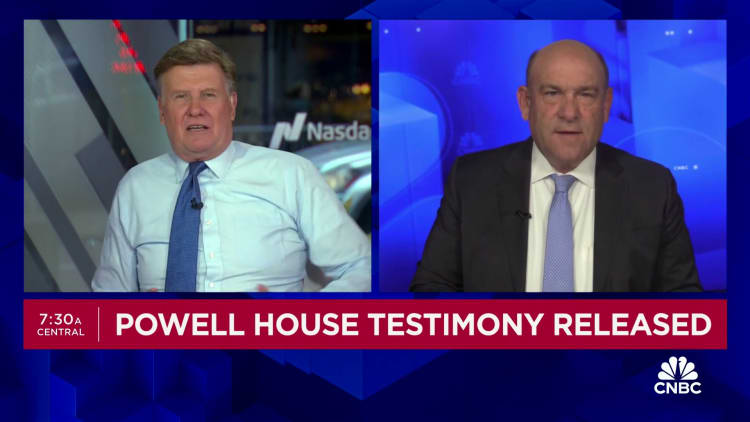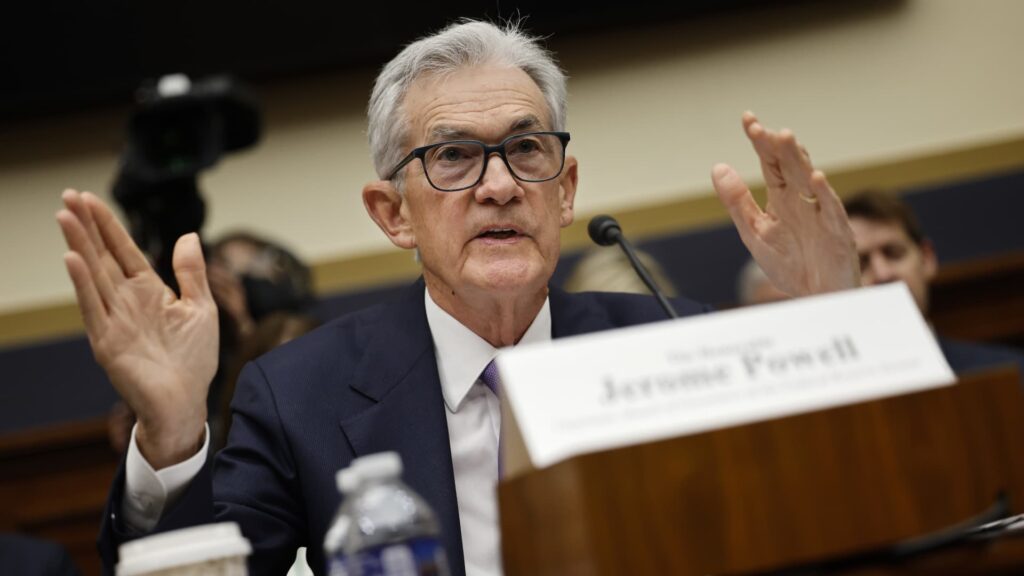
Federal Reserve Chairman Jerome Powell reiterated Wednesday that he expects interest rates to start falling this year but is not yet ready to say when.
In prepared remarks for Congress-mandated speeches on Capitol Hill on Wednesday and Thursday, Powell said policymakers remain alert to the risks posed by inflation and don’t want to slow the pace too quickly.
“When considering any adjustments to the target rate range, we will carefully evaluate incoming data, evolving prospects and the balance of risks,” he said. “The committee does not expect that it will be appropriate to reduce the target range until it has greater confidence that inflation is sustainably approaching 2 percent.”
These remarks were taken verbatim from the Federal Open Market Committee’s statement after its last meeting, which ended on January 31.
During a question-and-answer session with members of the House Financial Services Committee, Powell said he needed to “see a little more data” before moving on to rates.
“We think that because of the strength of the economy and the strength of the labor market and the progress we’ve made, we can approach this step carefully, thoughtfully and with more confidence,” he said. “When we achieve that confidence, we expect to do it sometime this year. Then we can begin to remove this limitation in our policies.”
Stocks rose during Powell’s speech, with the Dow Jones Industrial Average up more than 250 points by midday. Treasury yields were mostly lower as the benchmark 10-year note fell about 0.3 percentage point to 4.11%.
Rates will likely be at their peak
Overall, the speech did not break new ground about monetary policy or the Fed’s economic outlook. However, the comments indicated that officials remain concerned about losing progress made in fighting inflation and will make decisions based on incoming data rather than a predetermined course.
“We believe our policy rate is likely at its peak for this tightening cycle. If the overall economy performs as expected, it will likely be appropriate to begin reducing policy restraint at some point this year,” Powell said in comments. “However, the economic outlook is uncertain and continued progress towards our 2 percent inflation target is not guaranteed.”
He reiterated that cutting rates too quickly risks losing the battle against inflation and may have to raise rates further, while waiting too long poses a risk to economic growth.
Markets had been expecting aggressive easing from the Fed after 11 interest rate hikes totaling 5.25 percentage points that lasted from March 2022 to July 2023.
However, those expectations have changed in recent weeks following numerous cautionary statements from Fed officials. The January meeting helped cement the Fed’s cautious approach, with a statement explicitly saying that rate cuts would not happen for now, despite the market’s outlook.
Futures market prices currently point to the first cut coming in June, part of four cuts this year that add up to a full percentage point. That’s slightly more aggressive than the Fed’s forecast of three cuts in December.
Weakening inflation
Despite resistance to further rate cuts, Powell noted the movement the Fed has made toward its 2% inflation target without upsetting the labor market and the broader economy.
“The economy has made significant progress toward these goals over the past year,” Powell said. He noted that inflation has “declined substantially” as “the risks to achieving our employment and inflation goals have become more balanced.”
Inflation, according to the Fed’s preferred indicator, is currently 2.4% annually – 2.8% when excluding food and energy in the main indicators the Fed prefers to focus on. The figures reflect “a marked slowdown in the rate of price growth since 2022, which has been widespread across both goods and services prices.”
“Long-term inflation expectations appear to have remained firmly entrenched, as evidenced by a wide range of surveys of households, businesses and forecasters, as well as financial market performance,” he added.
Powell is likely to face a host of questions during his two-day visit to Capitol Hill, which began with testimony Wednesday before the House Financial Services Committee and ends Thursday before the Senate Banking Committee.
The questions mostly focused on Powell’s views on inflation and rates.
Republicans on the committee also criticized Powell over so-called “End Basel III” changes to bank capital requirements. Powell said he is part of a group on the Board of Governors that has “real, very specific concerns” about the proposals and said withdrawing the plan “is a real option.”
While the Fed has tried to stay out of politics, a presidential election year poses special challenges.
Former President Donald Trump, the likely Republican nominee, was sharply critical of Powell and his colleagues while in office. Some congressional Democrats, led by Sen. Elizabeth Warren of Massachusetts, have called on the Fed to cut rates as low-income families come under pressure to make ends meet.
Rep. Ayanna Pressley, D-Ohio, joined Democrats in calling for lower rates. During his administration, Democrats often criticized Trump for trying to persuade the Fed to cut spending.
“Housing inflation and housing affordability [is] The No. 1 issue I hear from my constituents,” Pressley said. “Families in my district and across the country need help right now. “I sincerely hope the Fed listens to them and lowers interest rates.”
Don’t miss these stories from CNBC PRO:


